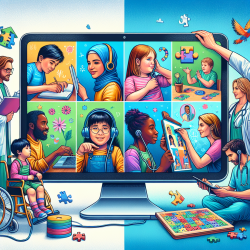Empower Your Practice: The TELL Tool for Better Conversations
In the realm of speech-language pathology, effective communication is the cornerstone of success. As practitioners, we constantly seek tools and strategies that enable us to support families in navigating complex conversations. One such tool that has emerged from recent research is the Tool to Empower Parental Telling and Talking (TELL Tool). This digital decision aid is specifically designed to assist parents in discussing their children's origins from donated gametes or embryos.
Understanding the TELL Tool
The TELL Tool was developed through a rigorous, evidence-based process, incorporating input from researchers, clinicians, parents, and donor-conceived adults. It aims to support parents in making informed decisions about when and how to talk to their children about their genetic origins. The tool is designed for parents of children aged 1 to 16 years and is grounded in the decision-making process model, which guides the selection of content.
Why the TELL Tool Matters
Research indicates that many parents struggle with the decision to disclose donor conception to their children. A systematic review revealed that only 23% of parents who used donor gametes or embryos had informed their children about their origins. The TELL Tool addresses this gap by providing a structured approach to decision-making, helping parents overcome emotional barriers and facilitating open communication.
Incorporating the TELL Tool into Practice
For speech-language pathologists, the TELL Tool offers a valuable resource to support families in their communication journey. By integrating this tool into your practice, you can help parents navigate the complexities of disclosure, ultimately fostering healthier parent-child relationships. The tool's digital format ensures accessibility, allowing parents to engage with the content at their own pace and in the privacy of their homes.
Encouraging Further Research
While the TELL Tool is a promising development, further research is needed to evaluate its efficacy and explore its potential applications in diverse cultural contexts. As practitioners, we have the opportunity to contribute to this body of research by sharing our experiences and insights from using the tool in clinical settings.
Conclusion
The TELL Tool represents a significant advancement in supporting parents through the disclosure process. By leveraging this evidence-based resource, speech-language pathologists can enhance their practice and contribute to better outcomes for children and families. To explore the original research paper and gain deeper insights into the development of the TELL Tool, please follow this link: Development of the Tool to Empower Parental Telling and Talking (TELL Tool): A digital decision aid intervention about children's origins from donated gametes or embryos.










